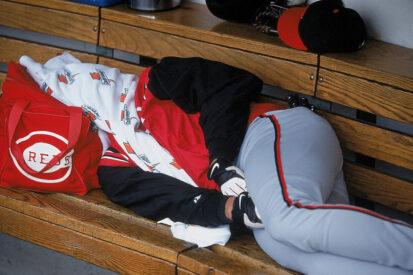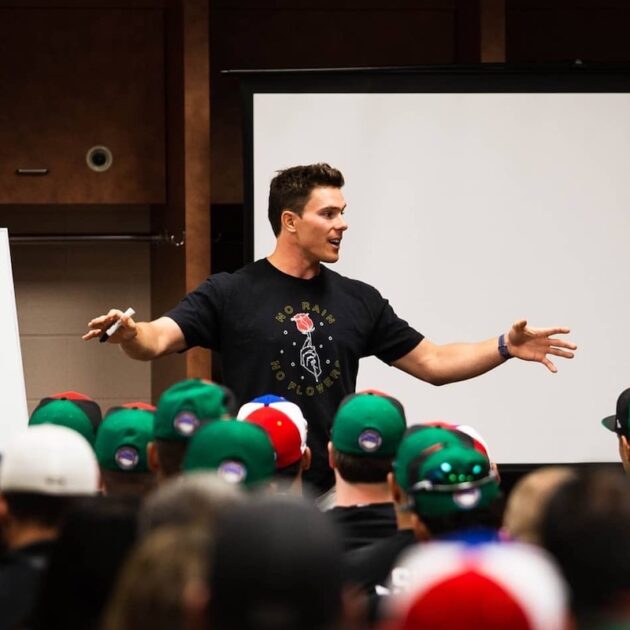We kick off the third part in our development blog series with mindset. Be sure to check out our other two blog series on character and leadership. I’ll be touching on a new topic in each one of these categories over the next few blog posts.
When we think about mindset, we think about perspective, focus, and learning in terms of mental performance. There are many ways you can train your mind in order to help you on the field and in life. One of those ways is self-talk. To achieve peak mental performance, managing your internal dialogue is key. Training your self-talk can help you identify negative self-talk and come up with a game plan to help you focus on positive self-talk. So what are some ways that we can improve our self-talk?
Identify negative thinking: Start to take note of times you dive into negative thinking. Realize when you are blaming yourself for things, always expecting the worth, or focusing on negative aspects of experiences or situations. Starting to become aware of when you are thinking negatively will help realize what the triggers are and know in advance when something might lead you to negative thinking. This can help you address them early on and come up with ideas that can combat them.
Find a phrase: One way to start yourself on a path to more positive self-talk is to come up with phrases that you can use during competition or training. When you feel overwhelmed and want to quit, it can be something as simple as “I am powerful” or “I am getting better”. Anything simple and positive that you can repeat. It may seem weird at first, but these simple words can help you push through adversity and bring your mind back to a place that is positive.
Visualization and Positive Images: Visualization is another mindset topic we will go more in-depth on in a later blog, but the phrases you create can help you paint a visual picture of you doing what you are saying. The combination of words and images can help you develop a solid positive message tied to a belief. Creating a vision board, a happy place, and many others can help you get better at visualization.
Be kind to yourself as you would to others: Remember to always give yourself grace. Especially in times of failure. When we fail, we often go straight to negative thoughts. Thinking we aren’t good enough or we aren’t going to be able to achieve our goals. Don’t say anything to yourself that you wouldn’t say to anyone else. If you are gentle with yourself even in times of failure, you can remember what you are thankful for and remember that you can make it through that tough moment.
Practice Gratitude: As we mention over and over, always always always practice gratitude. Gratitude is one of the key items that can get you back into a positive headspace. If you have an 0-for-4 night, be grateful that you will have another opportunity to play tomorrow and possibly rectify your bad game. Most things in life are temporary. Be grateful for the moments of failure that help you learn as well as all the positivity in your life.
Take time for self-care: We talk about this a lot, but make sure to take time for yourself. We can often get wrapped up in our training and competition that we forget to take time to spend time doing something just for yourself. Whether it is reading our favorite book, taking time to listen to music, or practicing meditation. Find activities that will help rejuvenate your overall well-being.
Positive self-talk can play a crucial role in your development both on and off the field. Finding ways that you can manage and train your internal dialogue can help you get through so many different moments of adversity and bring out the best of you on the field. Taking the time to train your self-talk will help you game plan for times that negative self-talk comes up. This can boost your motivation and encourage you to put more effort it when you might not think you have anything left in both training and competition.








